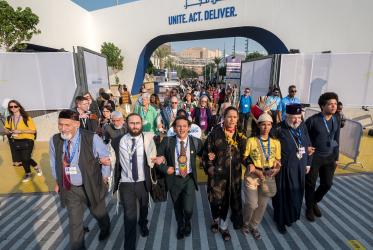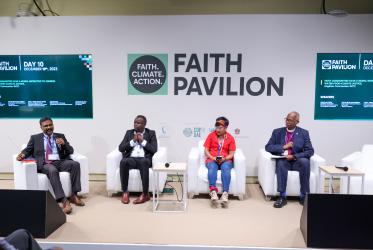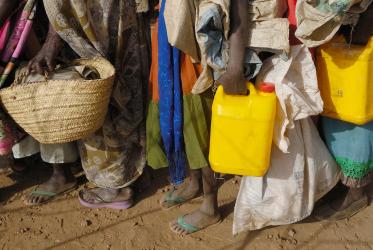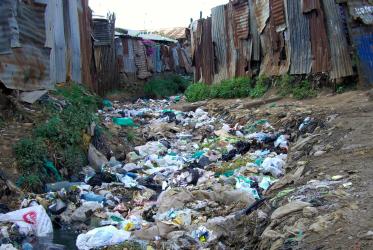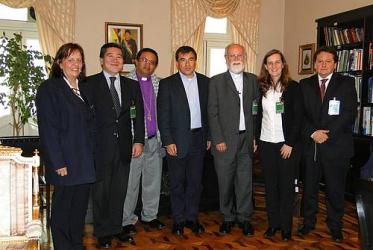Displaying 1 - 18 of 18
On World Toilet Day, sanitation is “an issue of justice”
16 November 2020
On World Water Day, we ask: “why waste water?”
22 March 2017
Seven weeks of Lent highlight water crisis in Africa
01 March 2017
WCC dedicates prayer service to Sustainable Development Goals
23 September 2015
Churches to pray for care of creation
20 August 2015
Statement on global economy delivered to Bolivia
15 January 2013
